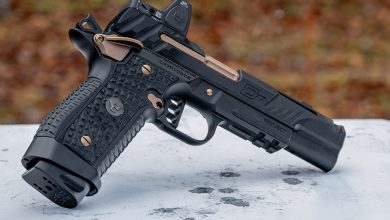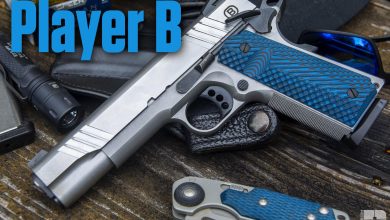When I was a little kid, the first real centerfire rifle I remember shooting was my grandfather’s M1 Carbine. I had shot plenty of .22LRs, but this was, in my mind, a real rifle. I loved it and have loved the .30 Carbine cartridge and the M1 Carbine ever since. The cartridge is fascinating. It’s not a pistol round, but it’s also less powerful than something like the 5.56.
The U.S. Army wanted a light rifle, smaller and lighter than the M1 Garand, aimed at arming rear-echelon troops. It was more than a pistol but less than a rifle, and it wasn’t taking an SMG from a soldier who needed it. The .30 Carbine cartridge and the M1 Carbine were popular at the front and quickly filled a role in combat.

Eventually, the .30 Carbine got lost in firearms development. It’s a real shame because the cartridge has a lot of potential as it’s a light recoiling, lightweight option within a couple of hundred yards. Plus, it’s fun to shoot and outperforms pistol rounds. It doesn’t make sense that it only saw such limited success.
However, this wasn’t due to a lack of trying. The M1, M2, and M3 Rifles weren’t the only weapons chambering the .30 Carbine, and plenty of attempts were made to keep the cartridge relevant.
The Other .30 Carbine Guns
When I say the other .30 Carbine guns, I don’t mean the other guns that competed against the Winchester Carbine. There were over half a dozen entries into the light rifle contest. I’m talking about guns that came post World War II. The United States exported the .30 Carbine cartridge en mass as they ditched the M1 Carbine. It popped up all around the world, from Vietnam to Israel and everywhere in between.
Even the United States attempted to keep the .30 Carbine kicking. It seems like most of these attempts have faded from relevance, but they’re notable, and we’re notating them! Let’s dig into the other 30 Carbine Guns.
T-29
America saw the STG-44 and decided that it was a neat idea. It wanted to create its own lightweight, select-fire rifle-like weapon. Engineers took the cheap and surprisingly robust M3 SMG and converted it to a .30-caliber rifle. The Army weapon development produced three prototypes. Two had 14-inch barrels, and one had an 8-inch barrel.


The T-29 used an M1 Carbine magazine and also developed a larger magazine. Lots of dimensional changes were made to the bolt, and the gun used two springs to drive the bolt and a shorter, stronger spring for the bugger. The T-29 didn’t make it far, and the Army decided that making the M2 Carbine select fire was easier.
CEAM 1950B
The STG-44 was also subject to competition, and one of the prototypes was the STG 45, which used a roller-delayed design. In 1950, the French dedicated themselves to expanding that idea, and German weapons designer Ludwig Vorgrimler worked with them to produce the CEAM Modele 1950B. At first glance, the 1950B looks like an HK roller-delayed design.


Ludwig would later develop the CETME series of Spanish rifles, which became the HK roller-delayed guns. The CEAM 1950 chambered a few cartridges throughout its prototyping, but they eventually settled on the .30 Carbine. I’d imagine a roller-delayed .30 carbine would be quite enjoyable to shoot and very controllable. These rifles would feature folding stocks and built-in handguard bipods.
The French abandoned the project, and Ludwig headed to Spain, where we got the famed CETME and HK roller-delayed rifles.
Cristobal Carbine
Hungarian expat Pál Király decided he didn’t like the cold and settled in the Dominican Republic. He had previously designed a submachine gun and brought that design with him. In the Dominican Republic, he modified the design to a .30 Carbine. The Cristobal Carbine used a fairly rare lever-delayed blowback system and was reportedly very reliable and easy to operate.
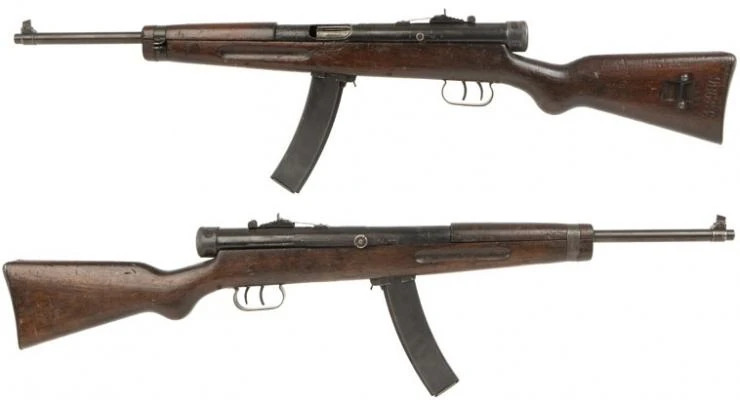

The rifle used a 30-round magazine and a plain wood stock that gave it a disarming appearance. The Dominican Republic produced nearly 200,000 Cristobal Carbines, and the gun remained in service as a training firearm into the 90s. Famed revolutionary Che Guevara even carried one.
Marlin 62 Levermatic
The Levermatic series are neat guns that famously used a cam and roller system for one of the smoothest lever actions ever. They were made in a variety of calibers. The Marlin 62 Levermatic came in .30 Carbine and used a four-round box magazine. This handy little rifle would be quite the brush gun and offered a light recoiling deer gun.


The Marlin 62 Levermatic was never super successful and was produced in smaller numbers, which makes it rare and highly desirable today. As far as I can tell, it was the only lever-action .30 Carbine ever produced.
Taurus/FAMAE CT-30
South America is one of those many countries where the .30 Carbine was prevalent. Brazilian firm Taurus teamed up with Chilean firm FAMAE to produce the CT-30. The CT-30 used the same long-stroke gas piston system with a rotating bolt as the Sig Sauer 540. This created a very interesting, almost submachine gun-sized light rifle.
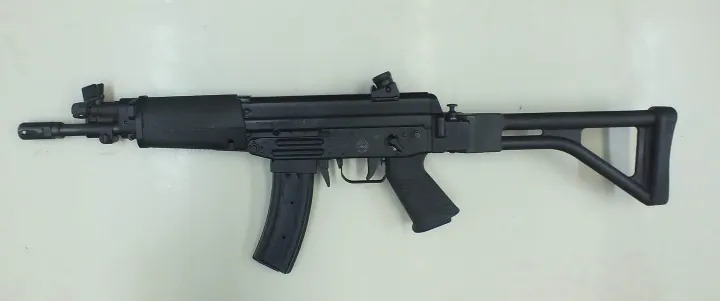

The gun used a folding stock, a 30-round magazine, and diopter-style sights. The Sig Sauer 540 series was known for being quite robust and reliable. This gave police forces a platform roughly the size of an SMG with a more potent cartridge. Sadly, due to disagreements between FAMAE and Taurus, the weapon failed after being issued to law enforcement.
IMI Magal
Israel is another country that has an excess of .30 Carbine ammo and even M1 Carbine rifles. Police and security forces have used them for decades. With that in mind, IMI took a look at their Galil and decided we could make it smaller. They did just that and produced the IMI Magal. The Magal scaled down the Galil and created a short, semi-auto carbine.
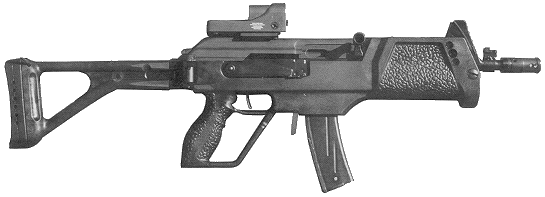

The Israelis put them to use in a dispute with Palestine in 2000, but field reports were not good. There were reliability and overheating issues. After that, the military and police suspended additional manufacturing. The gun has faded away with only a brief 555 carbine order to Brazil.
Olympic Arms PCR .30
You might have seen all these guns and wondered why there was no AR. AR-15s chamber everything. Don’t worry; Olympic Arms made an AR chambered in .30 Carbine. This obscure gun was a carbine in the CAR-15 style configuration with a 16-inch barrel, carry handle sights, and six-position stock. The gun used a proprietary magazine for reliability reasons.
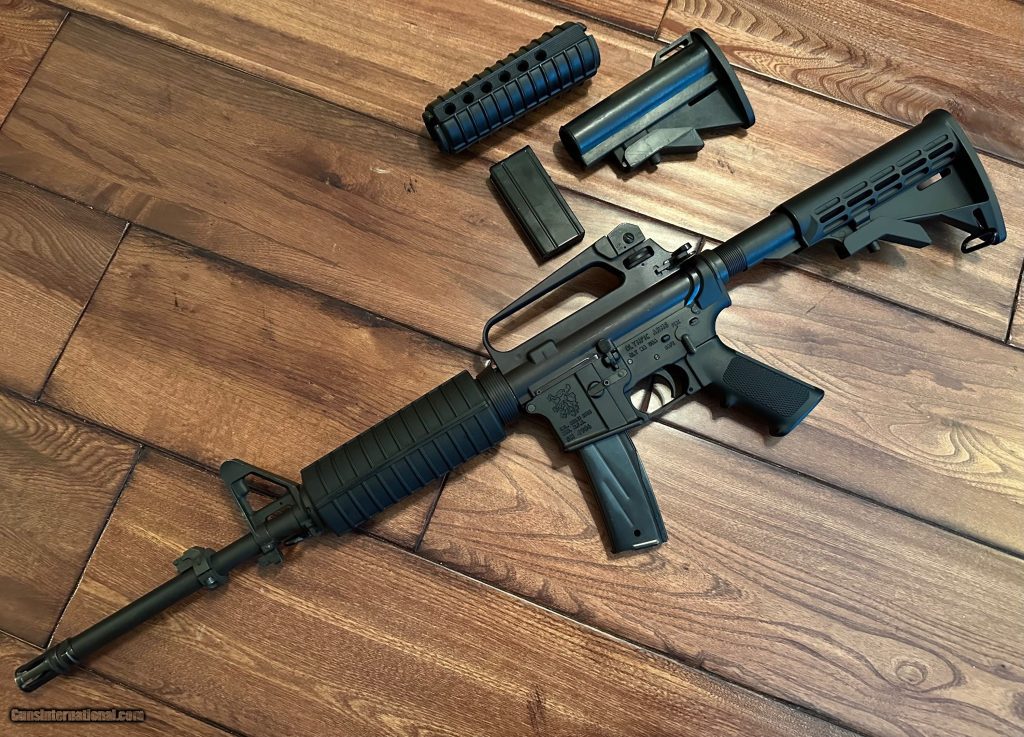

Admittedly, the tiny mag looks odd in the gun. There is some internet legend that I can’t confirm, but these guns were built for foreign export, and only roughly 400 were sold in the United States. They are very rare and command a premium price point. They would be a drastic improvement on the M1 Carbine and probably be one of the more successful .30 carbine rifles.
The .30 Carbine
The .30 Carbine doesn’t get much love these days. It’s faded away for calibers like .223 and .350 Legend. The price of ammo has steadily risen, and it’s certainly not a cheap caliber. I was pleasantly surprised by all the .30 Carbine rifles out there. In fact, I found so many that I didn’t even include the variety of handguns that chambered the round. Those handguns and the light rifle program as a whole are a different discussion for a different day.
Read the full article here

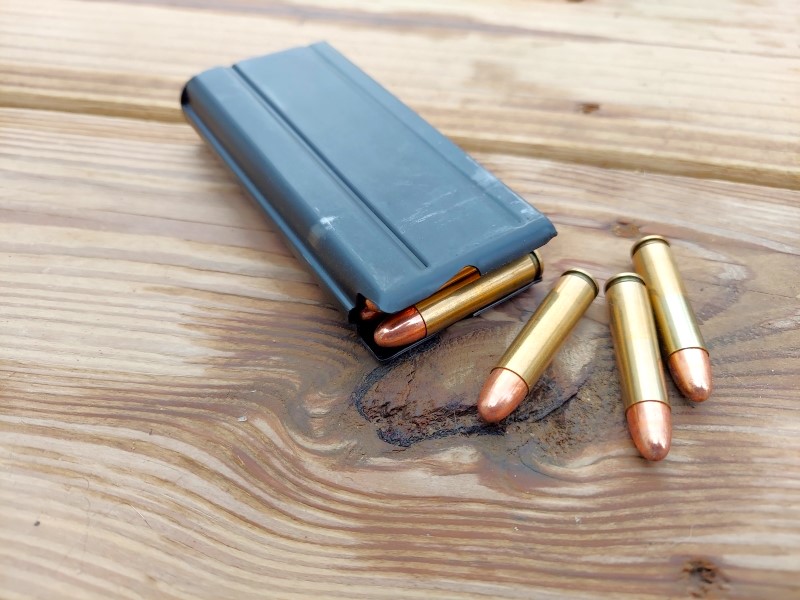

![[FIRST LOOK] Strike Industries EMP With LED [FIRST LOOK] Strike Industries EMP With LED](https://gundayfunday.com/wp-content/uploads/2024/12/SI-EMP-3-390x220.jpeg)
